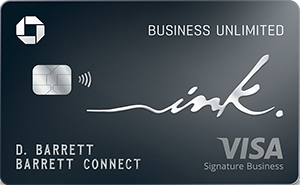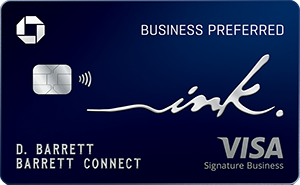3 Fast-Growing Industries Entrepreneurs Swear By
KEY POINTS
- The e-learning market will grow rapidly over the next few years.
- There's still plenty of room left in the e-commerce space.
- Some entrepreneurs are turning their skills into consulting work.
Entrepreneurs know that having a good business idea is only part of the successful business equation. You also have to find the right market or a unique niche for a business to thrive.
That's why targeting fast-growing industries is a smart move for entrepreneurs. Here are three thriving industries and a few tips on getting your business off the ground.
1. Online courses
The broad e-learning market is expected to grow from $197 billion in 2020 to $840 billion by 2030. There are some great platforms to add courses to, including Coursera and Skillshare, but if you build your own successful following online, you can even sell your courses directly to your audience to maximize your earning potential.
I've spent a lot of time using online courses to improve my writing, better understand the real estate market, and manage my time. The good thing about online courses is that people always seek new information for self-improvement.
To get started, determine which unique skills you've learned over the years that others could benefit from learning. This could be building websites, launching businesses, or managing others. With an online course, your skills are the main asset you're selling.
2. E-commerce
The e-commerce industry's expansiveness is one of its major draws for entrepreneurs. In just three years, the global e-commerce market will be worth $8 trillion, up from $5.7 trillion in 2023.
Business Credit Card Comparison
Consider these business credit cards that offer a convenient and efficient way to separate personal and business expenses, simplifying accounting and tax reporting.
Additionally, business cards can provide valuable perks such as rewards points, cashback, and expense tracking tools, enhancing financial management and the potential to help save money in the long run.
| Offer | Our Rating | Welcome Offer | Rewards Program | APR |
|---|---|---|---|---|

Ink Business Unlimited® Credit Card
Apply Now for Ink Business Unlimited® Credit Card
On Chase's Secure Website. |
Rating image, 4.50 out of 5 stars.
4.50/5
Our ratings are based on a 5 star scale.
5 stars equals Best.
4 stars equals Excellent.
3 stars equals Good.
2 stars equals Fair.
1 star equals Poor.
We want your money to work harder for you. Which is why our ratings are biased toward offers that deliver versatility while cutting out-of-pocket costs.
|
Earn $750 bonus cash back Earn $750 bonus cash back after you spend $6,000 on purchases in the first 3 months from account opening. | Earn unlimited 1.5% cash back on every purchase Earn unlimited 1.5% cash back on every purchase made for your business |
Intro: 0% Intro APR on Purchases Purchases: 0% Intro APR on Purchases, 12 months Balance Transfers: N/A Regular: 18.49% - 24.49% Variable |

Ink Business Preferred® Credit Card
Apply Now for Ink Business Preferred® Credit Card
On Chase's Secure Website. |
Rating image, 4.50 out of 5 stars.
4.50/5
Our ratings are based on a 5 star scale.
5 stars equals Best.
4 stars equals Excellent.
3 stars equals Good.
2 stars equals Fair.
1 star equals Poor.
We want your money to work harder for you. Which is why our ratings are biased toward offers that deliver versatility while cutting out-of-pocket costs.
|
Earn 100,000 bonus points Earn 100,000 bonus points after you spend $8,000 on purchases in the first 3 months from account opening. | Earn 3 points per $1 in select business categories Earn 3 points per $1 on the first $150,000 spent in combined purchases on travel, shipping purchases, Internet, cable and phone services, advertising purchases made with social media sites and search engines each account anniversary year. Earn 1 point per $1 on all other purchases-with no limit to the amount you can earn. |
Intro: N/A Purchases: N/A Balance Transfers: N/A Regular: 21.24%-26.24% Variable |
Maybe you want to sell wellness coaching services, launch a subscription box service, or even start a lifestyle brand. However, opening an online shop using Shopify and expecting customers to find your brand and start buying is not enough.
As with online courses, experts recommend finding a specific area of expertise to stand out. Narrow down your options to something you are passionate about and, ideally, have experience with.
Many businesses fail because their owners don't research the market first. So spend some time researching your market. Services like Similarweb and Glimpse can help you analyze the current competitive landscape.
3. Consulting
Consulting could be a good fit for entrepreneurs looking to use their skills to help others. The industry is also growing very fast, and the Bureau of Labor Statistics estimates that consulting jobs will increase 13.5% between 2021 and 2031.
You can start a consulting business in nearly any niche, but it's best to find something you have years of experience in.
I've used my marketing experience to help companies develop promotional materials and market their events and services on a freelance basis. While I don't have a full-fledged consulting business, I've had companies immediately see how my past experience can help them with their current problems.
The marketing platform company HubSpot says that business, profession, and accounting consultants are some of the most in-demand right now, so start there if you need some ideas.
How to get started
While there are no set steps to starting a new business, here are a few tasks to cross off your to-do list before launching your company.
1. Identify your skills
Knowing your skills and how to use them to launch a business is particularly important for the business ideas on this list. But this is applicable no matter what kind of business you want to start.
You don't have to be an expert, but if you know nothing about the business you want to launch, you'll need to spend time learning from others or finding a knowledgeable partner or mentor to help you get started.
2. Do market research
The second step is to do market research before you launch your business. Many small business owners skip this step, and it usually doesn't work out so well.
Recent research shows that 17% of businesses fail because they don't have a business plan. Suppose you love making pizza and want to open a pizzeria. In that case, you'll need to know how many competitors are in the area, how much they charge for their products, what profit you reasonably expect to make, etc. Doing the research ahead of time could save you a lot of headaches once you open the business.
Starting a small business can be scary, but knowing a few fast-growing industries to focus on makes the process less daunting. Once you've identified what type of business to start, spend a little time researching the market, and you'll likely be one step ahead of your competitors.
Alert: our top-rated cash back card now has 0% intro APR until 2025
This credit card is not just good – it’s so exceptional that our experts use it personally. It features a lengthy 0% intro APR period, a cash back rate of up to 5%, and all somehow for no annual fee! Click here to read our full review for free and apply in just 2 minutes.
Our Research Expert
We're firm believers in the Golden Rule, which is why editorial opinions are ours alone and have not been previously reviewed, approved, or endorsed by included advertisers. The Ascent, a Motley Fool service, does not cover all offers on the market. The Ascent has a dedicated team of editors and analysts focused on personal finance, and they follow the same set of publishing standards and editorial integrity while maintaining professional separation from the analysts and editors on other Motley Fool brands.
Related Articles
View All Articles